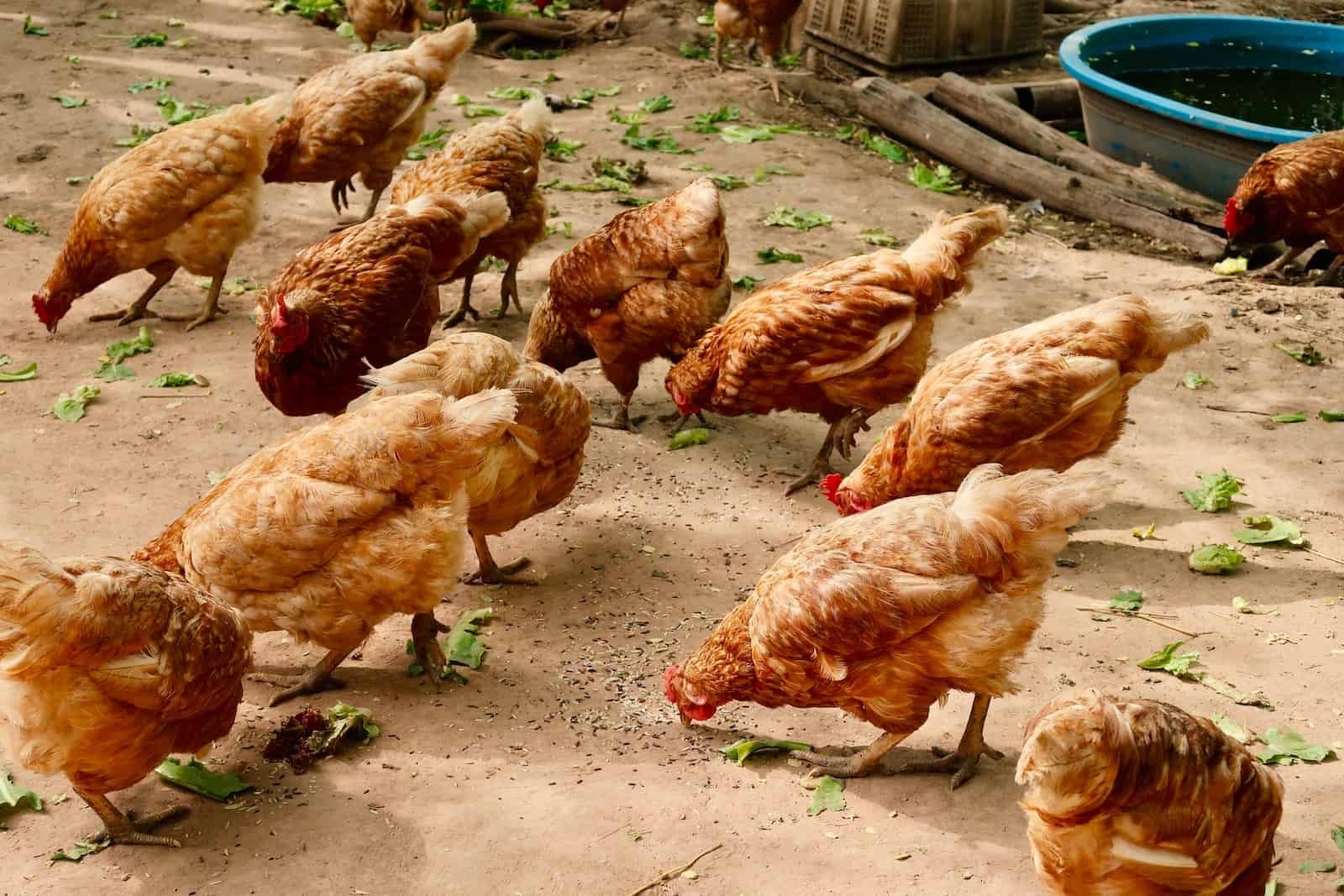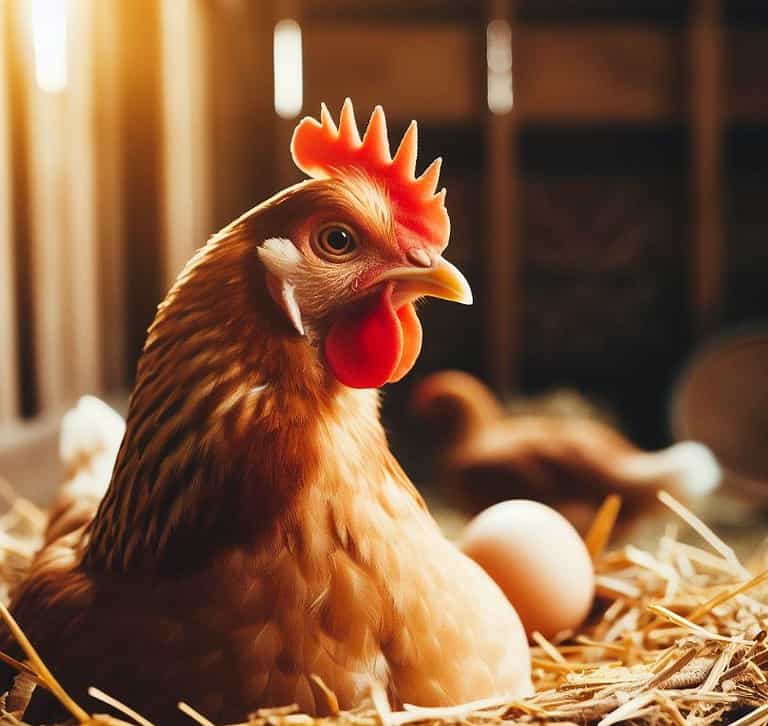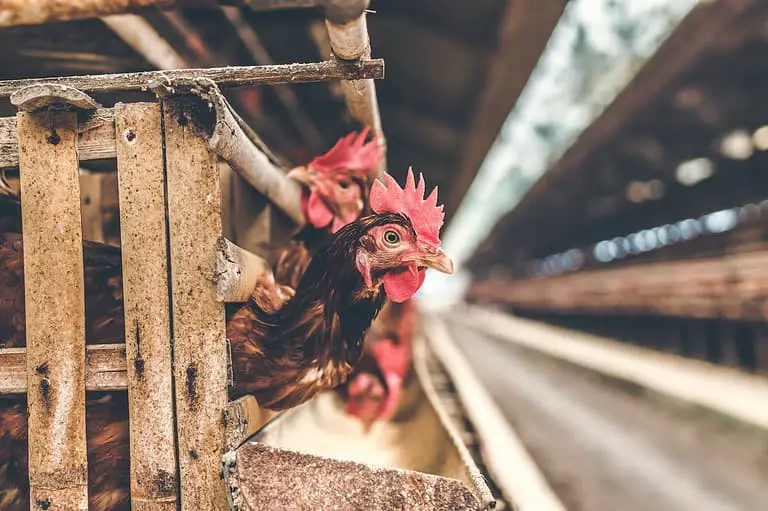The Advantages of Free-Range Chicken Farming
The Importance of Ethical and Sustainable Poultry Farming Practices
Free-Range Chicken Farming. Ethical and sustainable practices are the foundation of a responsible poultry farming industry. Poultry farming involves raising broiler chickens and layer chickens to produce eggs and meat for consumption. It is crucial for farmers to prioritize the health and welfare of the birds, as well as minimize the environmental impact of their operations.
One key aspect of ethical poultry farming is proper flock management. This includes providing the birds with appropriate housing, nutrition, and healthcare. Farmers must ensure that the chickens have access to clean water, sufficient space to move about, and a suitable diet that meets their nutritional needs. In addition, regular veterinary care and disease control measures should be implemented to prevent the spread of illnesses.
Ethical poultry farming practices also extend to the overall sustainability of the industry. Farmers should consider the long-term impact of their operations on the environment, such as minimizing water and energy usage, properly managing waste, and implementing sustainable land management practices. By adopting these practices, the poultry industry can contribute to a more sustainable food system that benefits both the planet and consumers.
The Health Benefits of Free-Range Chicken
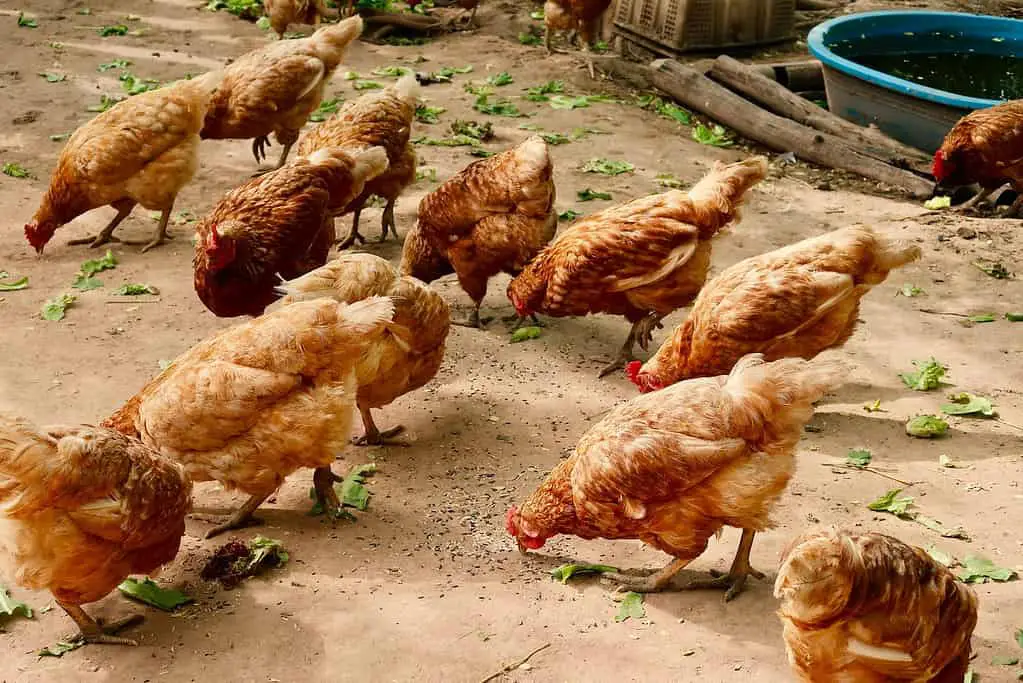
Free-range chicken is not just a popular choice for those who prioritize animal welfare, but it also offers numerous health benefits. One of the key advantages of free-range chicken is its higher nutritional value compared to conventionally raised chicken. These birds have access to a natural diet that includes insects, seeds, and plants, which results in a more diverse and nutrient-rich meat.
In addition, free-range chicken has been found to have lower levels of fat and calories compared to conventionally raised chicken. This can be attributed to the fact that free-range birds are more active, engaging in natural behaviors such as foraging and exercising, which helps to develop leaner muscles. As a result, consumers can enjoy a leaner protein option with reduced saturated fat content, making free-range chicken a healthier choice for those concerned about heart health and weight management.
Moreover, free-range chicken is often raised without the use of antibiotics or hormones, further enhancing its health benefits. The absence of these substances in the birds’ diet helps to ensure that consumers are not exposed to potentially harmful residues. Additionally, free-range chickens are less likely to develop antibiotic resistance, which is a growing concern in the poultry industry. By opting for free-range chicken, consumers can prioritize their health while supporting sustainable and ethical poultry farming practices.
Reduced Environmental Impact of Pasture-Raised Poultry
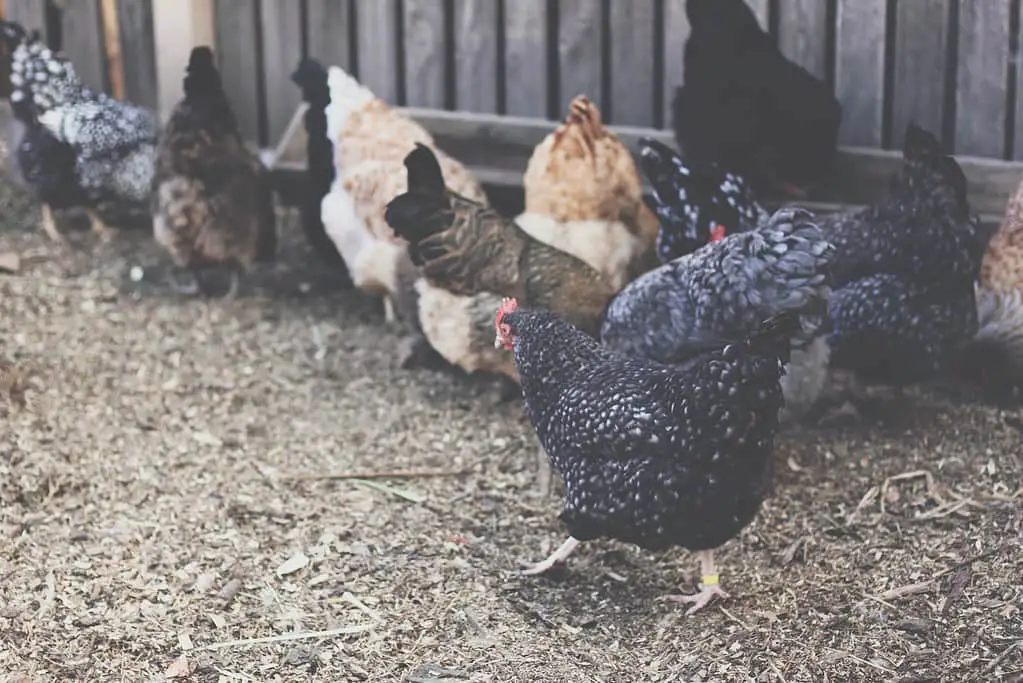
Pasture-raised poultry farming practices have gained recognition for their reduced environmental impact compared to conventional, confined operations. One key aspect contributing to this is the natural grazing behavior of the birds. By allowing chickens to roam freely on pasture, they have access to a varied diet that includes insects, seeds, and grasses. This means that less feed needs to be sourced and transported, reducing the carbon footprint associated with poultry farming.
Furthermore, pasture-based systems often employ rotational grazing, where the chickens are moved to fresh pasture regularly. This not only ensures that the birds have a constant supply of fresh forage, but also allows the land to naturally regenerate. The rotational grazing system helps prevent overgrazing and soil erosion, while promoting the growth of diverse plant species. This, in turn, enhances the overall health of the ecosystem and reduces the need for synthetic fertilizers or pesticides.
In conclusion, pasture-raised poultry farming offers a promising approach to reducing the environmental impact of the poultry industry. By providing chickens with a natural, diversified diet and utilizing sustainable grazing practices, these systems contribute to the preservation of soil health, biodiversity, and reduced carbon emissions. As consumers become increasingly concerned about the environmental impact of their food choices, supporting pasture-raised poultry can be a step towards a more sustainable and resilient food system.
Improved Animal Welfare in Free-Range Systems
In free-range systems, animal welfare is significantly improved compared to conventional poultry farming practices. The key difference lies in the ability for birds to roam outdoors, engaging in natural behaviors such as foraging, pecking, and dust bathing. This promotes their physical and psychological well-being, reducing stress and allowing them to lead a more fulfilling and happier life.
Furthermore, free-range systems also ensure proper space allocation, allowing each bird to have sufficient room for movement and social interaction. This helps to prevent overcrowding, which can lead to aggression and injuries. Additionally, the use of open-air housing provides ample ventilation and natural sunlight, creating a healthier and more comfortable environment for the birds. Overall, improved animal welfare in free-range systems is a testament to the positive impact that ethical and sustainable poultry farming practices can have on the well-being of broiler and layer chickens.
- Birds in free-range systems are able to engage in natural behaviors such as foraging, pecking, and dust bathing.
- This promotes their physical and psychological well-being, reducing stress and allowing them to lead a more fulfilling life.
- Free-range systems ensure proper space allocation, preventing overcrowding which can lead to aggression and injuries.
- Open-air housing provides ample ventilation and natural sunlight, creating a healthier and more comfortable environment for the birds.
- Ethical and sustainable poultry farming practices have a positive impact on the well-being of broiler and layer chickens.
Enhanced Nutritional Value of Free-Range Chicken
One of the key advantages of consuming free-range chicken is its enhanced nutritional value compared to conventionally raised chicken. Free-range chickens have access to a more varied diet, consisting of insects, worms, grass, and other natural food sources. As a result, they tend to have higher levels of key nutrients such as vitamins A and E, omega-3 fatty acids, and antioxidants.
Vitamin A is essential for maintaining healthy vision, promoting immune function, and supporting growth and development. Free-range chicken, which has more exposure to sunlight and natural food sources, contains higher levels of vitamin A compared to conventional chicken. Similarly, vitamin E is a powerful antioxidant that protects cells from damage and is more abundant in free-range chicken, making it a nutritious choice for individuals seeking to meet their daily vitamin E requirements.
Omega-3 fatty acids are another significant health benefit of free-range chicken. These essential fatty acids play a crucial role in cardiovascular health, brain function, and reducing inflammation in the body. Free-range chicken that has access to a diverse diet tends to have higher levels of omega-3 fatty acids, making it a favorable choice for individuals looking to increase their intake of these beneficial fats.
Antioxidants are compounds that protect the body’s cells against damage caused by free radicals. Free-range chicken, with its exposure to natural food sources rich in antioxidants, contains higher levels of these beneficial compounds compared to conventionally raised chicken. Antioxidants play a vital role in supporting overall health and reducing the risk of chronic diseases.
In conclusion, free-range chicken offers enhanced nutritional value due to its access to a diverse diet, resulting in higher levels of key nutrients such as vitamins A and E, omega-3 fatty acids, and antioxidants. These nutritional benefits make free-range chicken an appealing choice for individuals seeking to optimize their dietary intake and support their overall health and well-being.
Increased Flavor and Quality of Pasture-Raised Poultry
The flavor and quality of pasture-raised poultry are unparalleled due to several factors. Firstly, pasture-raised chickens are able to freely roam and forage in natural environments, leading to a diet rich in diverse vegetation and insects. This varied diet contributes to the development of more complex and flavorful meat. Additionally, the exercise and movement in pasture systems lead to leaner muscles, resulting in a tender and succulent texture.
Furthermore, pasture-raised poultry generally have a slower growth rate compared to conventionally raised chickens. This allows for gradual muscle development and maturation, resulting in a more pronounced and well-rounded flavor in the meat. The slower growth also allows for denser and firmer meat, further enhancing the overall quality of the poultry. These factors, combined with the absence of growth-promoting hormones or antibiotics, contribute to a superior flavor profile that cannot be replicated by industrial poultry farming methods.
What are the key ethical and sustainable practices in poultry farming?
Ethical and sustainable poultry farming practices include providing chickens with access to open pastures, allowing them to roam freely, and ensuring their overall welfare. This involves avoiding the use of antibiotics and growth hormones, and implementing responsible waste management systems.
What are the health benefits of consuming free-range chicken?
Free-range chicken is known to have lower levels of saturated fat and higher levels of omega-3 fatty acids compared to conventionally raised chicken. It also contains higher levels of vitamins and minerals, such as vitamin E and beta-carotene, which contribute to overall health and wellbeing.
How does pasture-raised poultry reduce environmental impact?
Pasture-raised poultry farms often adopt regenerative agriculture practices, which promote soil health, biodiversity, and carbon sequestration. By allowing chickens to graze on pastures, these farms reduce the need for intensive crop production and minimize their carbon footprint.
In what ways does free-range chicken farming improve animal welfare?
Free-range systems prioritize the welfare of chickens by providing them with natural environments to roam and forage. This allows them to engage in natural behaviors and reduces the stress and discomfort associated with confinement. Additionally, the absence of antibiotics and growth hormones promotes healthier and happier birds.
What nutritional advantages does free-range chicken offer?
Free-range chicken tends to have a richer nutritional profile compared to conventionally raised chicken. It typically contains higher levels of essential nutrients, such as vitamins
How does pasture-raised poultry enhance the flavor and quality of the meat?
Pasture-raised poultry, due to its natural diet and active lifestyle, tends to have a more robust and flavorful taste compared to conventionally raised chicken. The meat often has a firmer texture and is juicier, leading to a more enjoyable culinary experience.

